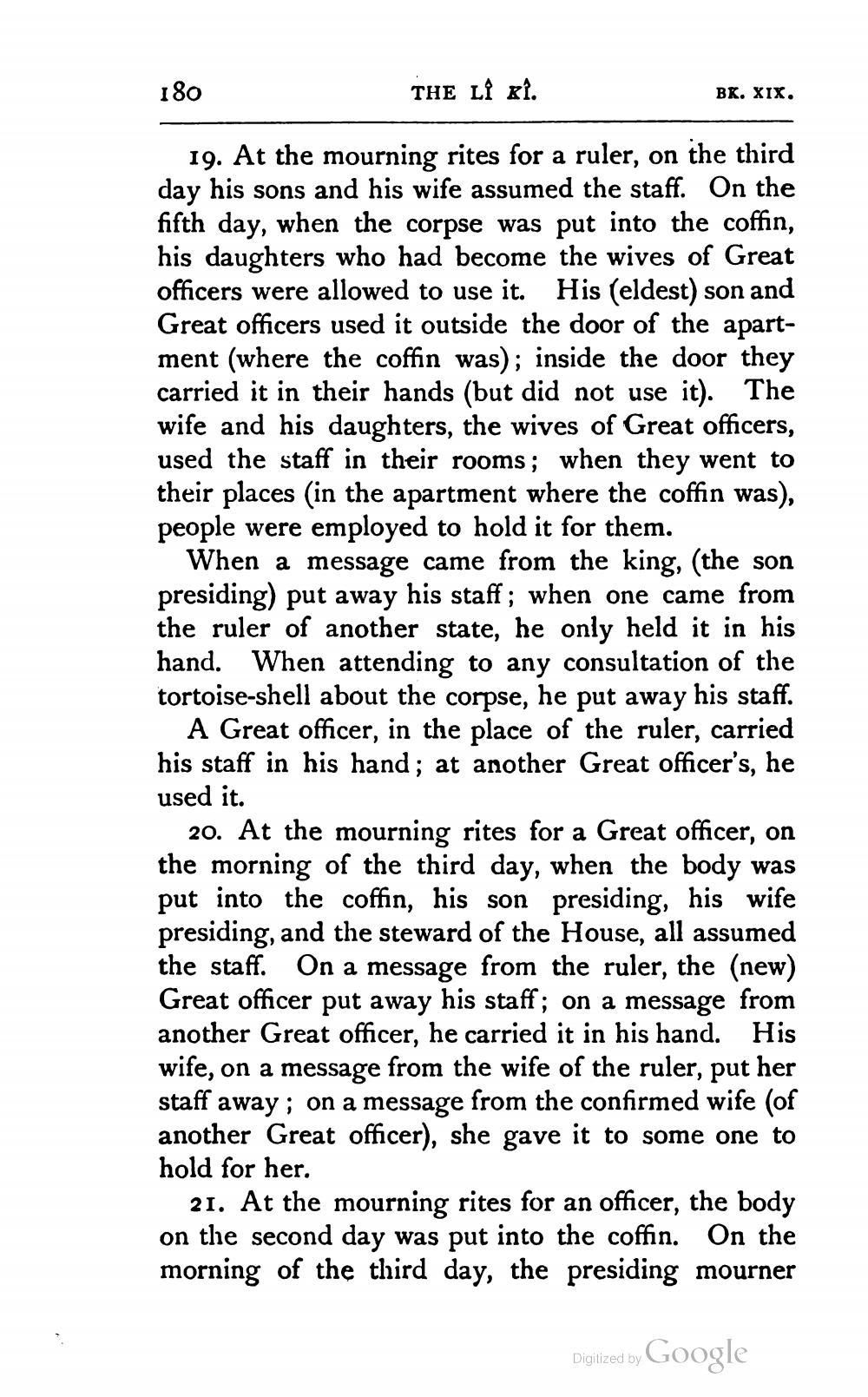________________
180
THE LI KI.
19. At the mourning rites for a ruler, on the third day his sons and his wife assumed the staff. On the fifth day, when the corpse was put into the coffin, his daughters who had become the wives of Great officers were allowed to use it. His (eldest) son and Great officers used it outside the door of the apartment (where the coffin was); inside the door they carried it in their hands (but did not use it). The wife and his daughters, the wives of Great officers, used the staff in their rooms; when they went to their places (in the apartment where the coffin was), people were employed to hold it for them.
When a message came from the king, (the son presiding) put away his staff; when one came from the ruler of another state, he only held it in his hand. When attending to any consultation of the tortoise-shell about the corpse, he put away his staff.
A Great officer, in the place of the ruler, carried his staff in his hand; at another Great officer's, he used it.
BK. XIX.
20. At the mourning rites for a Great officer, on the morning of the third day, when the body was put into the coffin, his son presiding, his wife presiding, and the steward of the House, all assumed the staff. On a message from the ruler, the (new) Great officer put away his staff; on a message from another Great officer, he carried it in his hand. His wife, on a message from the wife of the ruler, put her staff away; on a message from the confirmed wife (of another Great officer), she gave it to some one to hold for her.
21. At the mourning rites for an officer, the body on the second day was put into the coffin. On the morning of the third day, the presiding mourner
Digitized by
Google




